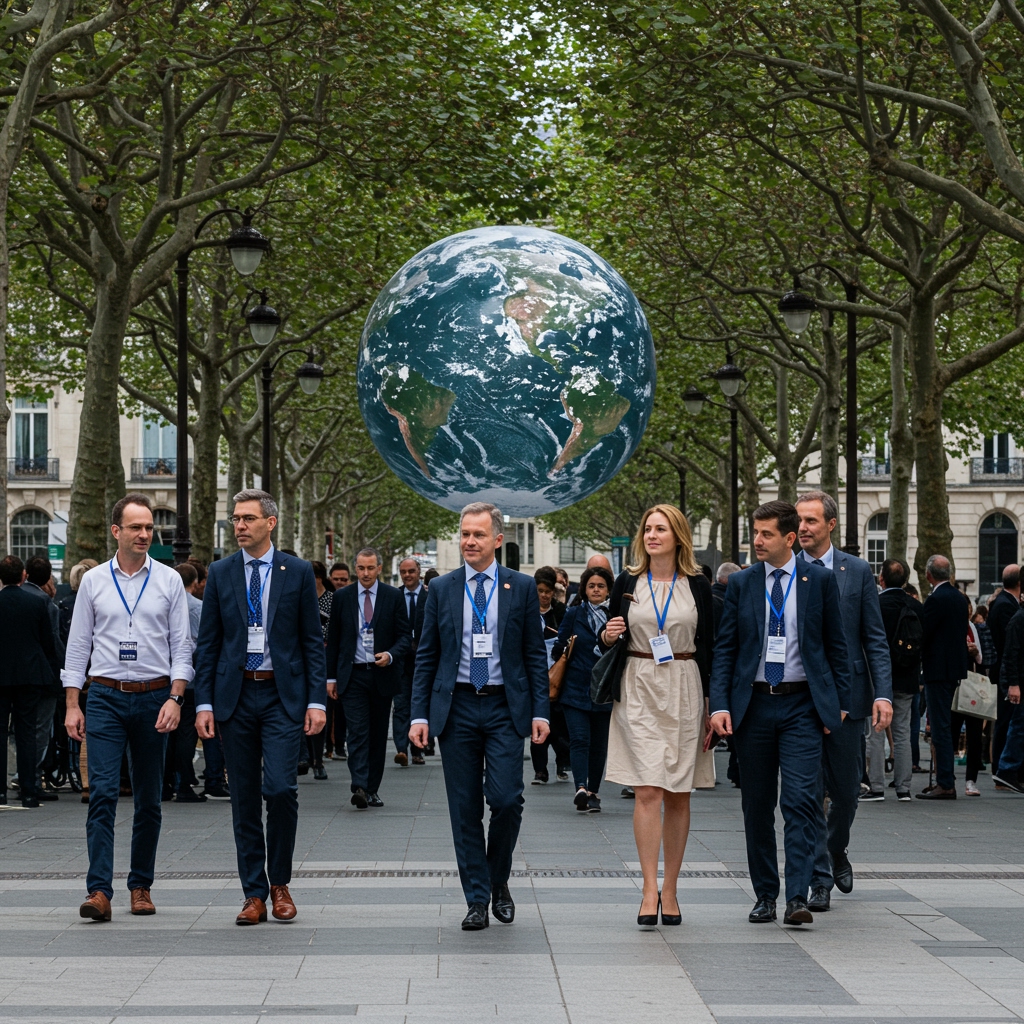Global Leaders Convene in Geneva for Inaugural AI Governance Summit
Geneva, Switzerland – In a significant move towards shaping the future of artificial intelligence, the United Nations Tech Council, in collaboration with the Swiss government, today announced the convening of the inaugural World Governance Forum on Artificial Intelligence (WGFAI). This high-level international summit is scheduled to take place in Geneva, Switzerland, from November 18-20, 2025, marking a pivotal moment in the global effort to establish shared principles and frameworks for the development and deployment of advanced AI technologies.
The rapid evolution and increasing integration of AI into every facet of society have underscored the urgent need for international cooperation on governance. While AI offers unprecedented opportunities for innovation, economic growth, and solving complex global challenges, it also presents substantial risks and ethical dilemmas. Concerns ranging from algorithmic bias and privacy infringement to job displacement, security threats, and the potential for autonomous weapons systems highlight the critical necessity of proactive, coordinated regulation.
Recognizing this pressing need, the WGFAI is designed to bring together a diverse and influential group of stakeholders. The forum is expected to host heads of state, representing national political will and policy-making authority; leading tech CEOs, crucial for their insight into technological capabilities, industry practices, and implementation challenges; and experts from over 100 nations, encompassing academics, ethicists, civil society representatives, and technical specialists. This multi-stakeholder approach is deemed essential for fostering a comprehensive understanding of AI’s multifaceted impacts and for developing viable, globally applicable solutions.
Key Objectives and Discussion Pillars
The primary objective of the WGFAI is to initiate a global dialogue aimed at establishing international guidelines and ethical standards for responsible AI development and deployment. The organizers emphasize the goal of finding common ground on foundational principles that can guide national policies and industry practices worldwide, mitigating risks while simultaneously fostering innovation that benefits humanity.
The forum’s agenda is structured around several key discussion pillars, identified as critical areas requiring urgent attention and international consensus. These include:
* Regulatory Frameworks: Discussions will delve into the complexities of creating effective, yet flexible, regulatory approaches that can keep pace with technological advancements. This involves exploring models for national and international oversight, addressing issues of compliance, enforcement, and the potential for fragmentation if countries adopt vastly different rules. The aim is to discuss pathways towards interoperability and mutual recognition of standards where possible, ensuring a level playing field and preventing regulatory arbitrage.
* Safety Protocols: A major focus will be placed on establishing robust safety standards and protocols for AI systems, particularly those with the potential for significant societal impact or autonomous capabilities. This includes methodologies for risk assessment, reliability testing, identifying and mitigating potential failure modes, preventing unintended consequences, and developing mechanisms for transparency and explainability in AI decision-making. Discussions will likely touch upon ‘red teaming’ exercises and safety certifications.
* Societal Impact: This broad category encompasses the wide-ranging effects of AI on jobs and the future of work, equity and fairness, privacy rights, civil liberties, and democratic processes. Participants will examine how AI technologies can exacerbate existing inequalities or create new ones, the challenges of adapting education and workforce training, and the need for policies that ensure the benefits of AI are broadly shared. The impact of AI-driven misinformation and the integrity of information ecosystems are also expected to be key points of discussion.
Towards a Non-Binding Charter
A central aim of the WGFAI is to work towards the finalization of a non-binding charter outlining principles for responsible AI governance by the forum’s conclusion on November 20, 2025. While acknowledging that a non-binding document represents an initial step rather than a definitive legal framework, organizers see it as a crucial foundation for building global consensus. Such a charter would articulate shared values, define ethical boundaries, and provide a common reference point for governments, corporations, and civil society as they navigate the complexities of AI governance. It is envisioned as a living document, capable of evolving as the technology and its implications become clearer, and potentially paving the way for more formal international agreements in the future.
Geneva: A Hub for International Diplomacy
The selection of Geneva, Switzerland, as the host city underscores its long-standing role as a major center for international diplomacy, human rights, and technological governance. Home to numerous United Nations agencies, international organizations, and a thriving ecosystem of research institutions and tech companies, Geneva provides a neutral and conducive environment for complex global negotiations. The city’s infrastructure and its reputation as a meeting point for diverse global actors make it an ideal location for the inaugural WGFAI.
Looking Ahead
The announcement of the WGFAI signifies a global recognition that managing the profound transformations brought about by artificial intelligence requires coordinated international action. While significant challenges lie ahead in bridging differing national interests, technological capacities, and regulatory philosophies, the commitment from the United Nations Tech Council and the Swiss government to convene this forum represents a critical step forward.
The outcomes of the WGFAI in November 2025 are eagerly anticipated. The successful finalization and widespread endorsement of a non-binding charter would send a strong signal of international intent and provide a much-needed framework for guiding the development and deployment of AI towards a future that is safe, equitable, and beneficial for all.





